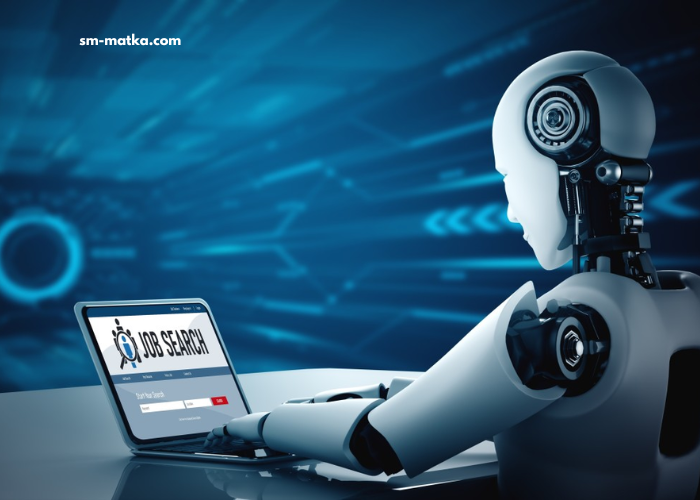
Artificial Intelligence (AI) is no longer just a futuristic concept; it has become an integral part of modern technology, transforming industries across the globe. From automation to predictive analytics, AI’s impact on the tech industry is profound and far-reaching. In this article, we will explore how AI is revolutionizing the tech industry, its current applications, and the future potential it holds.
The Rise of AI in the Tech Industry
Artificial Intelligence has evolved from a niche research field to a driving force in various sectors. Early AI technologies were primarily focused on solving specific problems, such as game-playing or problem-solving. However, in recent years, advancements in machine learning, natural language processing, and computer vision have enabled AI to become more versatile and applicable to a wide range of use cases within the tech industry.
Today, AI is being integrated into everything from smartphones and cloud computing to cybersecurity and data analytics. The influence of AI is expanding rapidly, and its capabilities continue to advance at a rapid pace, making it a central component of the future of technology.
Key AI Technologies Revolutionizing the Tech Industry
AI is a broad field encompassing many different technologies. Some of the most important AI innovations driving change in the tech industry include:
- Machine Learning (ML)
Machine Learning, a subset of AI, focuses on enabling machines to learn from data without being explicitly programmed. By identifying patterns in data, ML algorithms can make predictions or decisions, improving over time as more data is provided. Machine learning is central to AI advancements, particularly in areas like personalization, recommendation systems, and predictive analytics. - Natural Language Processing (NLP)
Natural Language Processing allows computers to understand, interpret, and respond to human language. From chatbots to virtual assistants like Siri and Alexa, NLP is at the core of AI’s ability to communicate with users. It also plays a vital role in sentiment analysis, translation services, and content generation, enabling machines to bridge the gap between human language and machine understanding. - Computer Vision
Computer vision involves training AI systems to interpret and make decisions based on visual data. It enables machines to recognize objects, faces, and even read text in images. Applications of computer vision in the tech industry include facial recognition, autonomous vehicles, augmented reality, and quality control in manufacturing. - Robotic Process Automation (RPA)
Robotic Process Automation uses AI to automate repetitive and rule-based tasks, improving efficiency and reducing human error. In the tech industry, RPA is used to automate tasks like data entry, customer support, and IT management, allowing organizations to focus on more complex tasks that require human intelligence. - Deep Learning
Deep Learning, a subset of machine learning, involves neural networks with many layers (hence “deep”). This technology is used for tasks that require large amounts of data and computational power, such as image and speech recognition, as well as natural language understanding. Deep learning is behind the most advanced AI applications, from self-driving cars to AI-generated art.
How AI Is Impacting the Tech Industry
AI’s transformative effect on the tech industry can be seen in various aspects of its application. Below are some of the key ways AI is changing the landscape.
1. Automation and Efficiency
One of the most significant contributions AI has made to the tech industry is the automation of complex tasks. From software development to customer support, AI systems can take over many manual, repetitive processes, freeing up human resources for more strategic and creative work.
For instance, AI-powered coding assistants like GitHub Copilot are already helping developers write code more efficiently. These systems use machine learning to understand patterns in programming languages and suggest code snippets that fit the project’s context. Similarly, AI-driven DevOps tools automate testing, deployment, and monitoring processes, reducing downtime and ensuring continuous integration and delivery.
2. Personalization and User Experience
AI is enabling businesses to create highly personalized experiences for their customers. Whether through recommendation systems on e-commerce platforms or custom-tailored content on streaming services, AI algorithms analyze user behavior to predict preferences and make personalized suggestions.
In the tech industry, personalized user experiences are also being leveraged in software interfaces. AI-driven user interface (UI) design tools can adapt to users’ actions and preferences, providing a seamless and intuitive experience. These applications make tech products more engaging, improving customer satisfaction and retention.
3. Cybersecurity Enhancement
With the increasing frequency and sophistication of cyber threats, AI is becoming a crucial component in enhancing cybersecurity. AI can help tech companies detect and prevent cyberattacks faster and more efficiently than traditional methods.
Machine learning algorithms can analyze large datasets to identify abnormal patterns, flagging potential threats such as malware, ransomware, or phishing attacks. Furthermore, AI systems can respond to security incidents in real time, automatically taking steps to isolate compromised systems and prevent further damage. As cyber threats become more complex, AI will continue to play a pivotal role in safeguarding sensitive data and infrastructure.
4. Data Analytics and Business Intelligence
AI is revolutionizing data analytics by enabling businesses to analyze massive volumes of data at unprecedented speeds. AI-powered tools can sift through vast datasets to uncover hidden insights, helping businesses make data-driven decisions that were once too complex or time-consuming to extract manually.
For instance, predictive analytics, a branch of AI, is helping tech companies forecast market trends, customer behavior, and system performance. These insights can be used for everything from product development to marketing campaigns. AI-powered business intelligence tools are also being integrated into decision-making processes, enabling leaders to make more informed choices based on real-time data.
5. Cloud Computing and AI Integration
AI and cloud computing are a perfect match, as cloud platforms provide the scalability and processing power required for AI workloads. Cloud services such as Amazon Web Services (AWS), Google Cloud, and Microsoft Azure offer AI tools and frameworks that allow businesses to integrate AI capabilities without the need for extensive on-premises infrastructure.
Cloud-based AI solutions are enabling organizations to access advanced technologies like machine learning, data storage, and analytics tools at a fraction of the cost of traditional computing. As cloud computing continues to grow, its integration with AI will drive innovation across the tech industry, from software development to business operations.
The Future of AI in the Tech Industry
As AI technology continues to evolve, its potential for revolutionizing the tech industry is boundless. The following are some future trends and areas where AI will likely have a profound impact:
1. Autonomous Systems
Autonomous systems, including self-driving cars, drones, and robots, are among the most exciting AI innovations. These technologies are expected to revolutionize industries such as transportation, logistics, and manufacturing. AI will continue to improve the safety, efficiency, and functionality of autonomous systems, allowing them to perform tasks previously reserved for humans.
In the tech industry, AI-powered robotics are expected to play a growing role in warehouse automation, customer service, and even software development. These systems can work around the clock, enhancing productivity and reducing costs.
2. AI-Driven Innovation in Hardware
The future of AI in the tech industry isn’t limited to software. AI is also driving innovation in hardware. AI-specific chips and processors, like Google’s Tensor Processing Unit (TPU) and NVIDIA’s Graphics Processing Units (GPUs), are designed to handle the intensive computation required for AI workloads.
These specialized hardware advancements will enable faster, more efficient AI applications, particularly in fields like machine learning and deep learning. As AI continues to scale, hardware improvements will ensure that its potential can be fully realized.
3. Ethical AI and Responsible Development
As AI becomes more embedded in the tech industry, concerns about its ethical implications are growing. Issues such as bias in algorithms, data privacy, and job displacement will require careful attention from both developers and policymakers.
Tech companies are already investing in AI ethics to ensure that AI systems are transparent, fair, and accountable. Future AI applications will likely be governed by more stringent regulations, promoting the responsible development and deployment of AI technologies.
4. AI for Sustainability
AI has the potential to play a crucial role in achieving sustainability goals. From optimizing energy consumption to improving waste management, AI can help tech companies reduce their carbon footprint and create more sustainable practices.
For example, AI algorithms can be used to optimize energy usage in data centers, making them more energy-efficient. In addition, AI can assist in designing eco-friendly hardware and software solutions, contributing to the broader goal of environmental sustainability.
Conclusion
AI is undeniably revolutionizing the tech industry, bringing about profound changes in automation, personalization, cybersecurity, data analytics, and cloud computing. As AI technologies continue to advance, they will open new avenues for innovation, driving even greater transformations in the industry.
The future of AI in the tech sector is exciting, with autonomous systems, AI-driven hardware advancements, and ethical considerations shaping the next chapter. As companies continue to harness the power of AI, it is clear that this transformative technology will remain at the heart of the tech industry’s evolution. Embracing AI today will ensure that businesses stay competitive and thrive in an increasingly AI-driven world.



